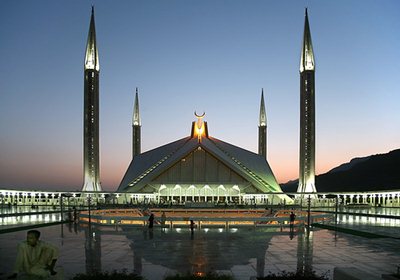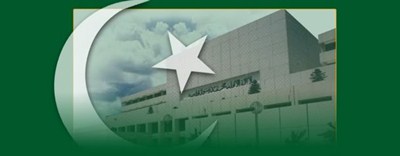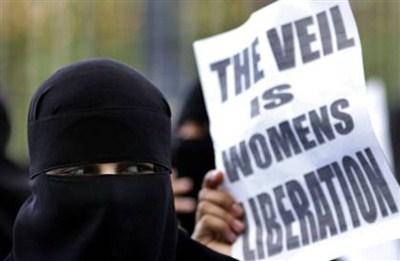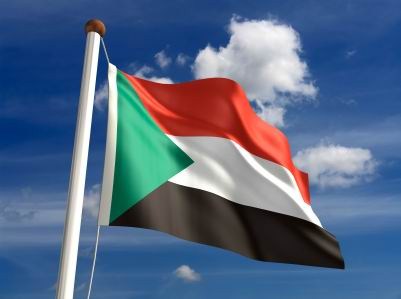Views
on News
- Anayatullah Niyazi
(anayatullah_niyazi@yahoo.co.in)
British
Army uses mosques on UK firing range:
The UK army was accused of gross insensitivity yesterday for putting up
seven mosque-like structures on a firing range. Muslim leaders said the
replicas were used as symbols of danger and reinforced negative
stereotypes of Islam. The fake buildings - complete with green-domed
roofs - were installed on the Black Beck range at Catterick Garrison in
North Yorkshire. During training exercises, soldiers were instructed to
fire at wooden targets mounted on rails which emerge from behind the
'mosques'. Last night, the British Ministry of Defence apologised and
said it had 'no intention of offending religious sensibilities'. But a
spokesman said it was crucial that the 'generic Eastern buildings' were
put up to replicate conditions in Afghanistan ahead of future
deployments.
Turkish PM Erdogan says
Israel is threat to peace:
This week Turkey's Prime Minister has described Israel as the main
threat to peace in the Middle East. Recep Tayyip Erdogan was speaking
during a visit to Paris. Relations between the two countries have been
worsening since the Israeli incursion into the Gaza Strip in 2009, made
worse by a recent diplomatic row. Mr Erdogan was speaking to
journalists before meeting the French President Nicolas Sarkozy. "It is
Israel that is the main threat to regional peace," he said. "If a
country uses disproportionate force, in Palestine, in Gaza, uses
phosphorus bombs we are not going to say 'well done.'" Mr Netanyahu
said he regretted the Turkish prime minister's comments. "We are
interested in good relations with Turkey and regret that Mr Erdogan
chooses time after time to attack Israel," he told reporters in Israel.
The countries have been allies in the past. But earlier this week, the
Turkish ambassador of Israel was recalled by Ankara, weeks after being
humiliated in public by the Israeli deputy foreign minister. Ambassador
Oguz Celikkol was called into the Israeli foreign ministry in January
and rebuked over a Turkish television series that showed Israeli
intelligence agents kidnapping children. Mr Celikkol was made to sit on
a low chair while being lectured by Deputy Foreign Minister Danny
Ayalon. Mr Ayalon later apologised for the rebuke. Israeli Foreign
Minister Avigdor Lieberman has compared Mr Erdogan to Presidents Hugo
Chavez of Venezuela and Libya's leader Muammar Gaddafi.

Zardari stripped of constitutional powers:
The
parliament of Pakistan has voted unanimously in favour of measures
which limit key presidential powers. The measures transfer certain
powers from the office of the president to the prime minister and take
away his power to dismiss elected governments. Supporters said that the
legislation will strengthen parliamentary democracy, weakened by
periods of military rule. The bill was approved unanimously by
Pakistan's National Assembly. It now needs approval from the upper
house. The constitution as it stands confers vast powers on the
president, including the power to appoint military chiefs. That will
end, as will the president's ability to dismiss all or any of the
central or provincial governments in Pakistan.

Belgium
to ban the burqa:
The
draft legislation in Belgium, aimed at clamping down on Islamic
extremism, forbids anyone from hiding their faces in public. And those
who break the law will be fined or sent to prison for up to a week if
the legislation is approved. A committee of MPs voted unanimously
yesterday to put the hard-line bill to a full parliamentary vote on 22
April. If passed, Belgium will become the first country in Europe to
impose a complete ban on the wearing of full-face veils. The law has
cross-party support and is likely to be voted through. "We cannot allow
someone to claim the right to look at others without being seen," said
liberal MP Daniel Bacquelaine, who proposed the bill. "It is necessary
that the law forbids the wearing of clothes that totally mask and
encloses an individual." Mr Bacquelaine estimated that a few hundred
women in Belgium wore facial veils, adding that it was a rising trend.
Belgium's Muslim population stands at about 600,000, or 6 % of
the total. More than one-third of those are Moroccans or of Moroccan
descent. The second largest Muslim ethnic group is made up of Turks.
|

European Islamophobia spreads to
Poland:
In
a sight familiar in some west European countries but new to Poland,
dozens of protesters demonstrated in a Warsaw suburb last weekend,
against the construction of a mosque. Plans by Poland's tiny Muslim
community to build a place of worship and an Islamic cultural centre
face opposition in a sign that concerns about Islam may be spreading
eastwards to the staunchly Catholic European Union member. Between
15,000 and 30,000 Muslims, many of them immigrants from Chechnya, live
in Poland -- the biggest ex-communist EU state where more than 90
percent of the 38-million population declare themselves Catholics. A
telephone survey conducted on March 25 among 500 Poles showed 48
percent opposed construction of a mosque with a minaret in their
neighborhood, while 42 had nothing against it. "This fear comes from a
lack of knowledge... The average citizen knows a Muslim was behind the
World Trade Centre attacks but doesn't follow the differences within
Islam. Poles have simplistic ideas about Islam as they lack their own
experience with Muslims", said Agata Skoworn-Nalborczyk, an Islam
specialist at the Warsaw University.

America intervenes to
stage-manage Sudan's election:
The
US special envoy for Sudan, Scott Gration, held talks in Khartoum on
Thursday with opposition leaders in a bid to rescue this month's
Sudanese elections. Gration, who flew in on Wednesday according to
diplomatic sources, met separately with Umma party members, Islamist
leader Hassan al-Turabi and Democratic Unionist Party head Mohammed
Osman al-Mirghani. The mission comes a day after presidential hopeful
Yassir Arman pulled out of April 11-13 vote for fear of fraud, casting
doubt on the electoral process and clearing the way for a likely
first-round win by President Omar al-Beshir. The move from Arman,
candidate of the former rebel Sudan People's Liberation Movement from
the south of the country, came after Beshir ruled out deferring the
first multi-party Sudanese polls in 24 years.Already before Arman's
pullout, the United States, Britain -- Sudan's former colonial power --
and Norway, a main provider of aid, on Wednesday, expressed concern over
the elections. "We urge all parties in Sudan to work urgently to ensure
that elections can proceed peacefully and credibly in April," US
Secretary of State Hillary Clinton, British Foreign Secretary David
Miliband and Norwegian Foreign Minister Jonas Store said."We are deeply
concerned by reports of continued administrative and logistical
challenges, as well as restrictions on political freedoms," they said
in a joint statement.
Pak-US ‘slave' dialogue was a
good step forward : Wall Street Journal:
The
United States must deliver what Pakistan needs rapidly, and without too
much intrusive monitoring of its strategic nuclear assets, the US
newspaper ‘the Wall Street Journal' writes while commenting on last
week's Pakistan-US strategic dialogue held in Washington. Terming the
strategic dialogue a good step forward, it said, the US must also give
the Pakistan military more usable weapons to fight its militancy. The
newspaper said that US must use its influence on India to give
Pakistan breathing room, so it can concentrate on the war within rather
than stay ready for action on two fronts, one against India and the
other on the Afghan border. Opening US markets to Pakistani textiles
and other goods will also help in the near term. In the long run,
Pakistan needs help to move up the economic value chain and into
manufacturing goods. With its growing population, it needs GDP growth
of 6 percent or more each year to keep improving the lives of its 175
million inhabitants, half of whom are below 18 years of age. That
growth depends on foreign investment, which is critically dependent on
security and good governance, both of which have been in short supply
in recent years. But Pakistan must also avoid becoming dependent on aid
or ceding its sovereignty in the process of acquiring aid. As former
military dictator, Mohammad Ayub Khan, put it bluntly: Pakistan needs
"friends not masters," it concluded.

|

 Download pdf (2.6 mb)
Download pdf (2.6 mb)

 Download pdf (2.6 mb)
Download pdf (2.6 mb)